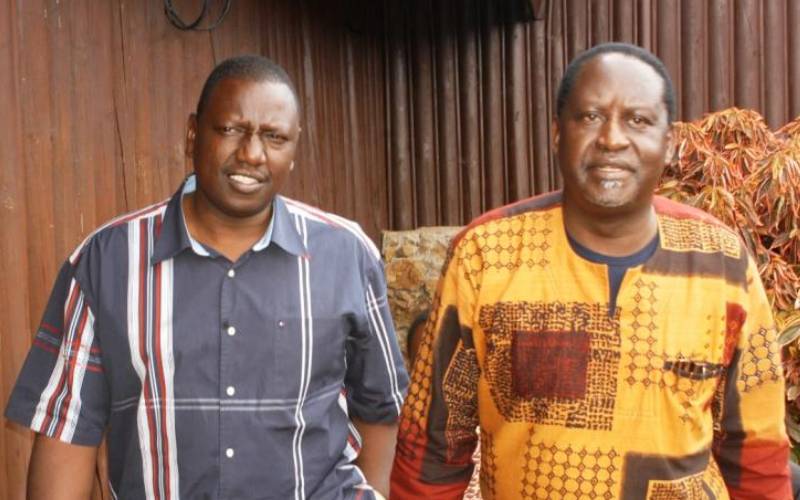×
The Standard e-Paper
Join Thousands Daily

President Uhuru Kenyatta and Raila Odinga (left) have made peace, but they have also jointly engaged in fresh hostility between their camp and DP William Ruto’s. [File, Standard]
The serpent hisses where the sweet birds sing. The punch-up in Parliament this week brings back Thomas Hardy’s famous words with a sense of terrible foreboding.